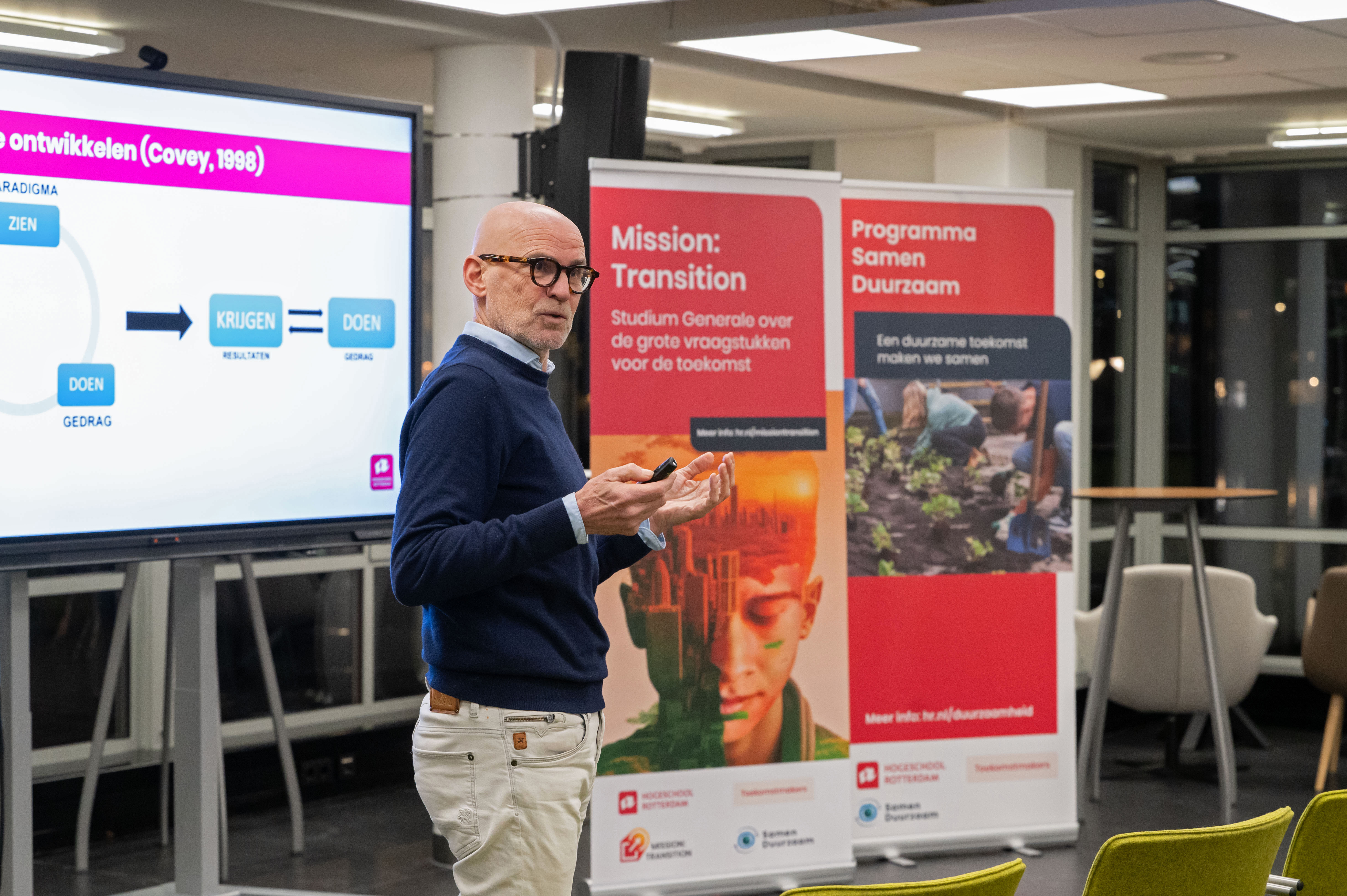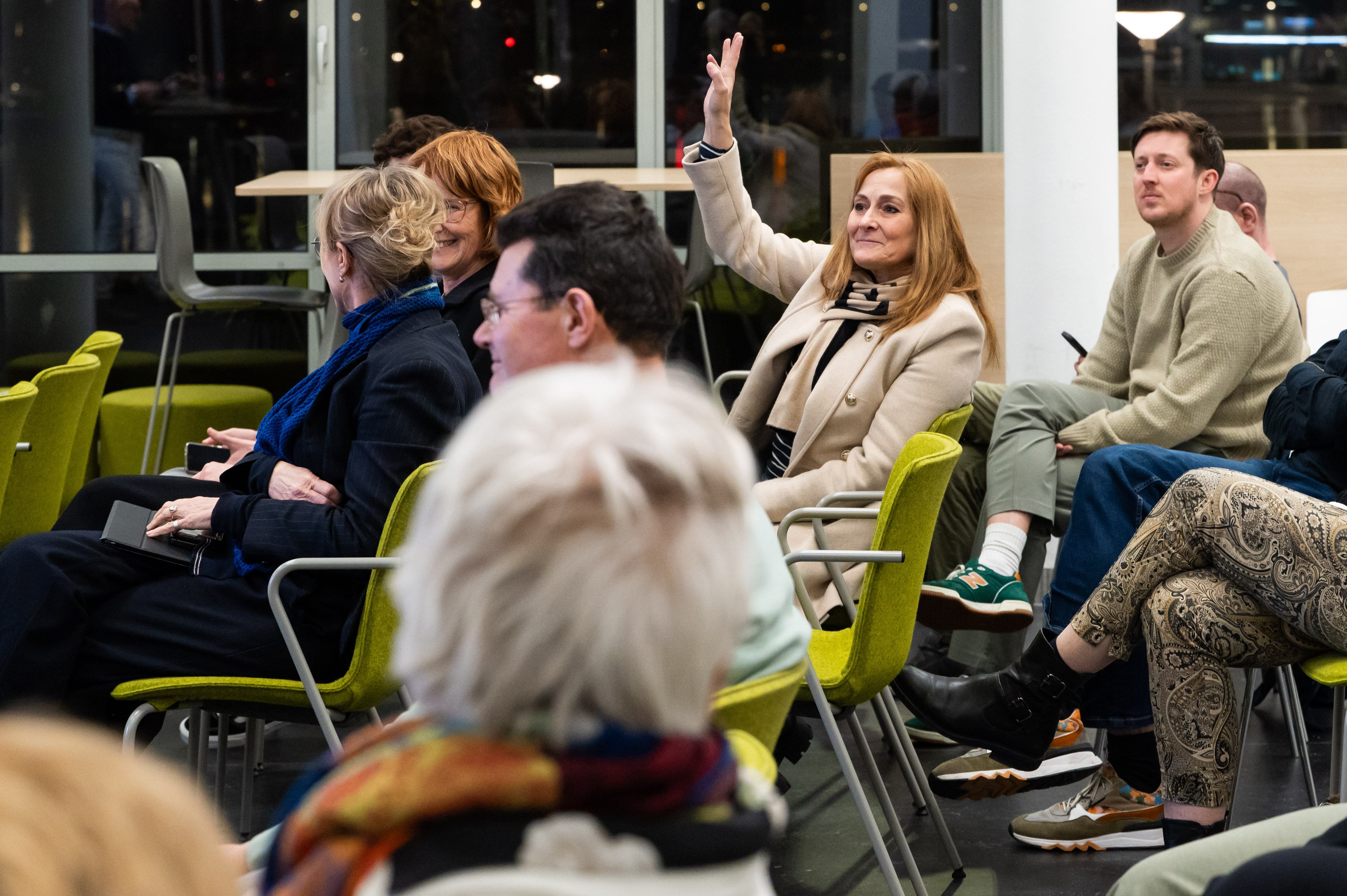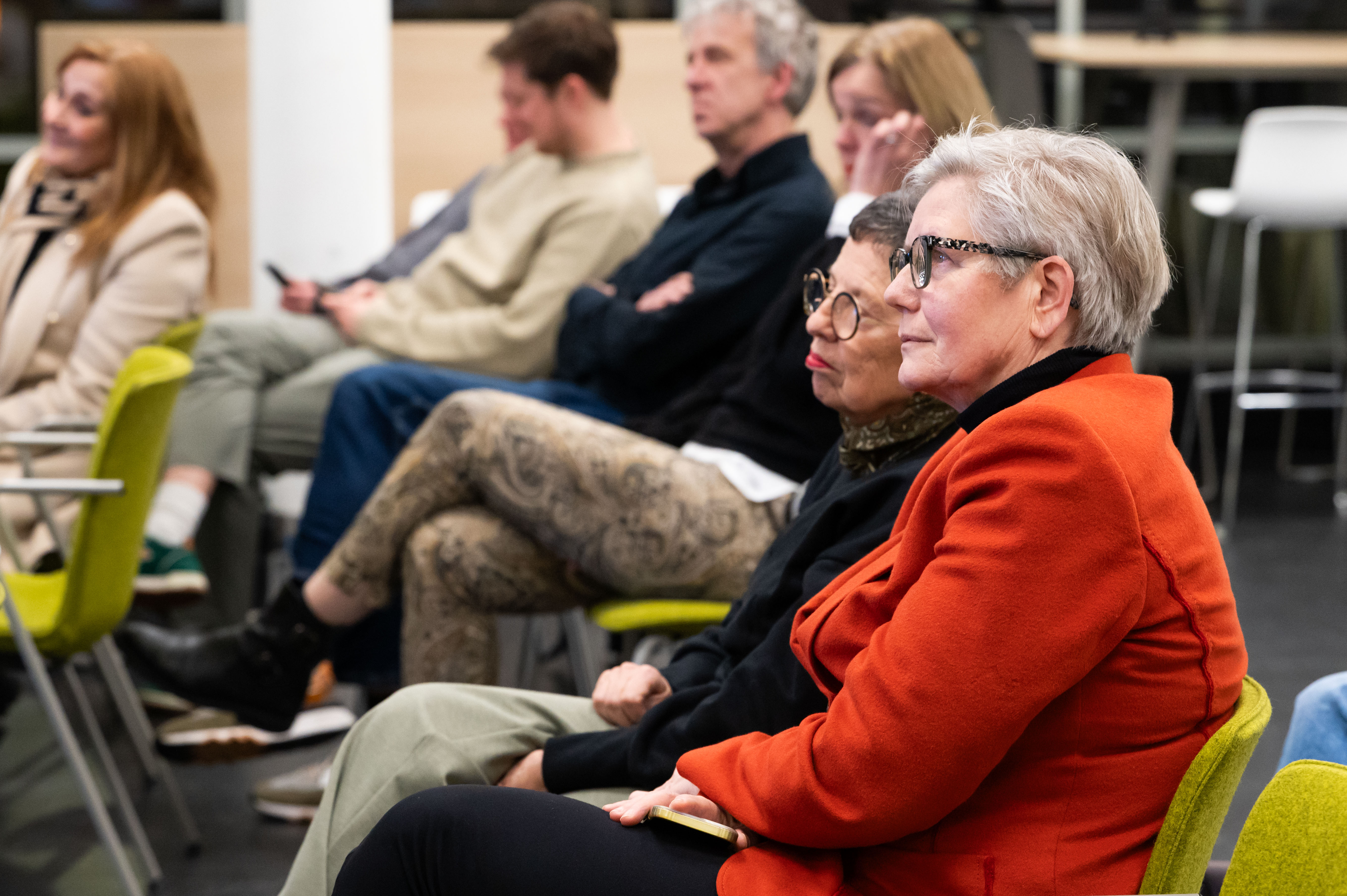The Sustainable Nurse
As well as emitting greenhouse gases, the healthcare sector generates a lot of waste: for example, a patient in intensive care generates up to seventeen kilograms of waste in one day. This includes all sterile-packaged materials and disposables. The sector is also responsible for 13% of the use of raw materials such as minerals and metals. These findings have led to the creation of ‘The Sustainable Nurse’ national initiative, of which Dr Ellen Bakker is a board member. This initiative brings together health professionals from healthcare, education and academia to make a significant contribution to making healthcare more sustainable. By inspiring each other and sharing knowledge, they are making a big impact as the largest professional group in healthcare. However, incorporating sustainability into education is proving to be a major challenge.
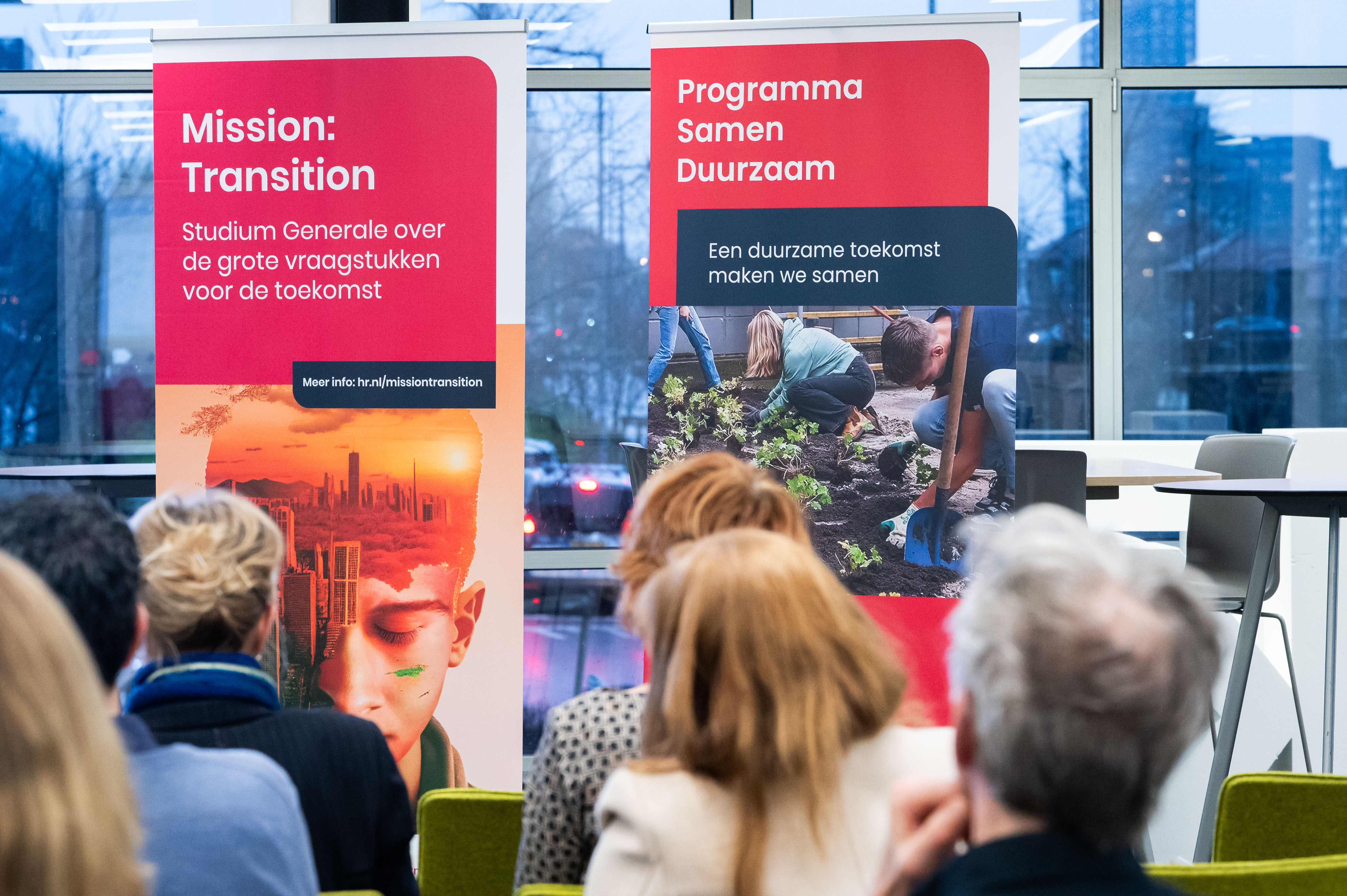
Behavioural Change is essential
Healthcare is facing capacity shortages, high workloads and already overcrowded curricula. And it is clear that quality of care is paramount. That is why Dr Ellen Bakker is looking to connect opportunities. For example, she teaches students that healthy choices are often environmentally conscious choices. Better health for people means better health for the planet. It is a win-win situation that you, as a health professional, can contribute to,' she says. She introduces students to the different levels at which they can make a difference: as individuals, as healthcare professionals, in the healthcare sector and in society. Through the tool on website Mijnverborgenimpact.nl, she makes students aware of their own ecological footprint. She concludes, “In the coming period, I would like to focus on behavioural change, which starts with knowledge and awareness.” As work package leader dissemination of the ESCH-R project, she works together with Johan Reijenga, the next speaker.
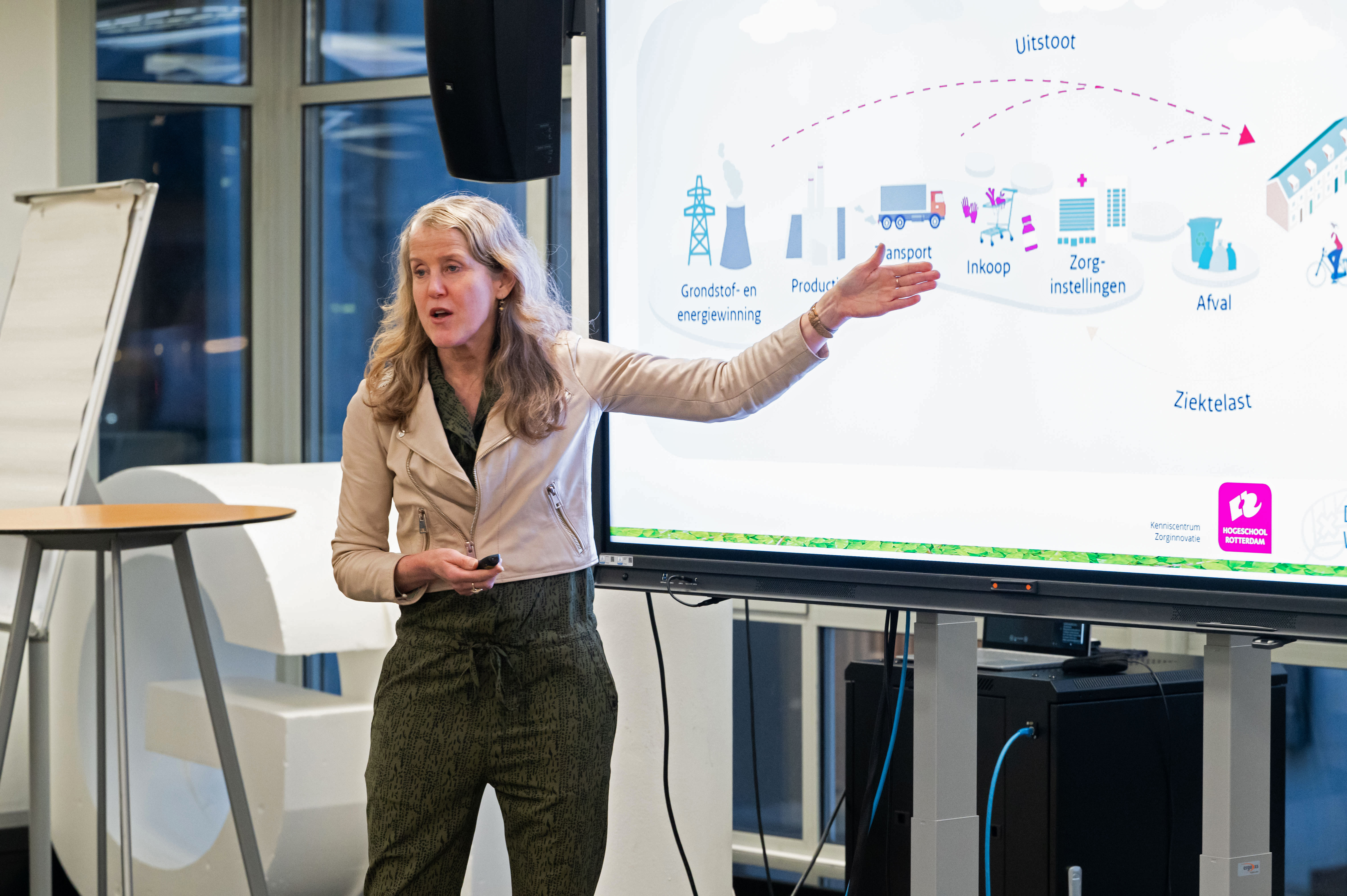
Experimentation in a real environment
While ‘The Sustainable Nurse’ focuses on the wider healthcare sector, the ESCH-R project focuses explicitly on reducing the carbon footprint of hospitals. ESCH-R's mission is to accelerate the adoption of circular interventions in hospitals, thereby reducing carbon emissions, using fewer materials and generating less waste. The research question: How can hospitals use fewer disposable products and make the transition to circularity? To investigate this, the ESCH-R research project also set up two living labs: one at Erasmus MC and one at UMC Utrecht.
Johan Reijenga from the Research Centre for Business Innovation is responsible for the ESCH-R Living Lab Circular Care at Erasmus MC. The project gives bachelor's and master's students, eight PhD students and three post-docs the opportunity to contribute academically to making hospitals circular. Reijenga explains, “The characteristics of a living lab are collaboration between different stakeholders around societal issues and a real experimental space.”
In the ESCH-R Living Lab, the environmental impact of the product itself and the use of twelve products are being examined through life cycle or care path analyses. On this basis, these 12 products will be redesigned in co-creation with companies. Both high-value products, such as medical devices, and low-value products, such as gloves and syringes, are being studied. Ultimately, they are trying to apply the 10R model.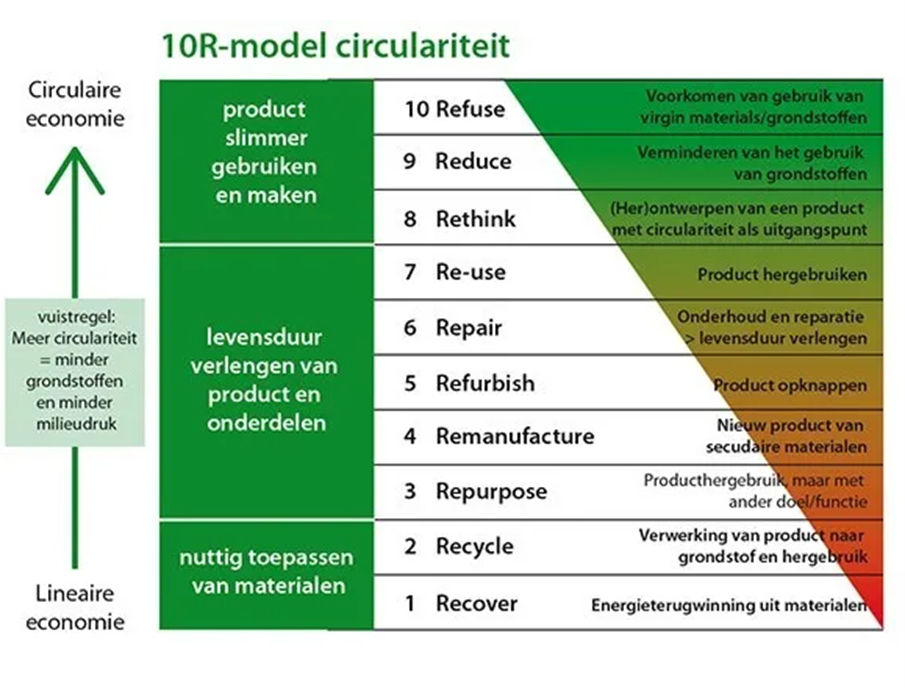
Continually seeking collaboration
Moving up the 10R ladder requires a change in behaviour. Much of the behaviour in hospitals has developed on the basis of habits. According to Reijenga, “These habits have gradually become accepted.” Queues in the hospital? An accepted habit. Not returning medication but throwing it away? Accepted habit. We have even developed habits such as wearing two pairs of gloves, which is dangerous from a hygiene point of view. One of the things the Living Lab does is provide insight into these habits.
“At the heart of the Living Lab, says Reijenga, is dialogue.” He hopes to further intensify the relationship with students, colleagues at Delft University of Technology, the Green Teams and other stakeholders. So that we increasingly seek collaboration.
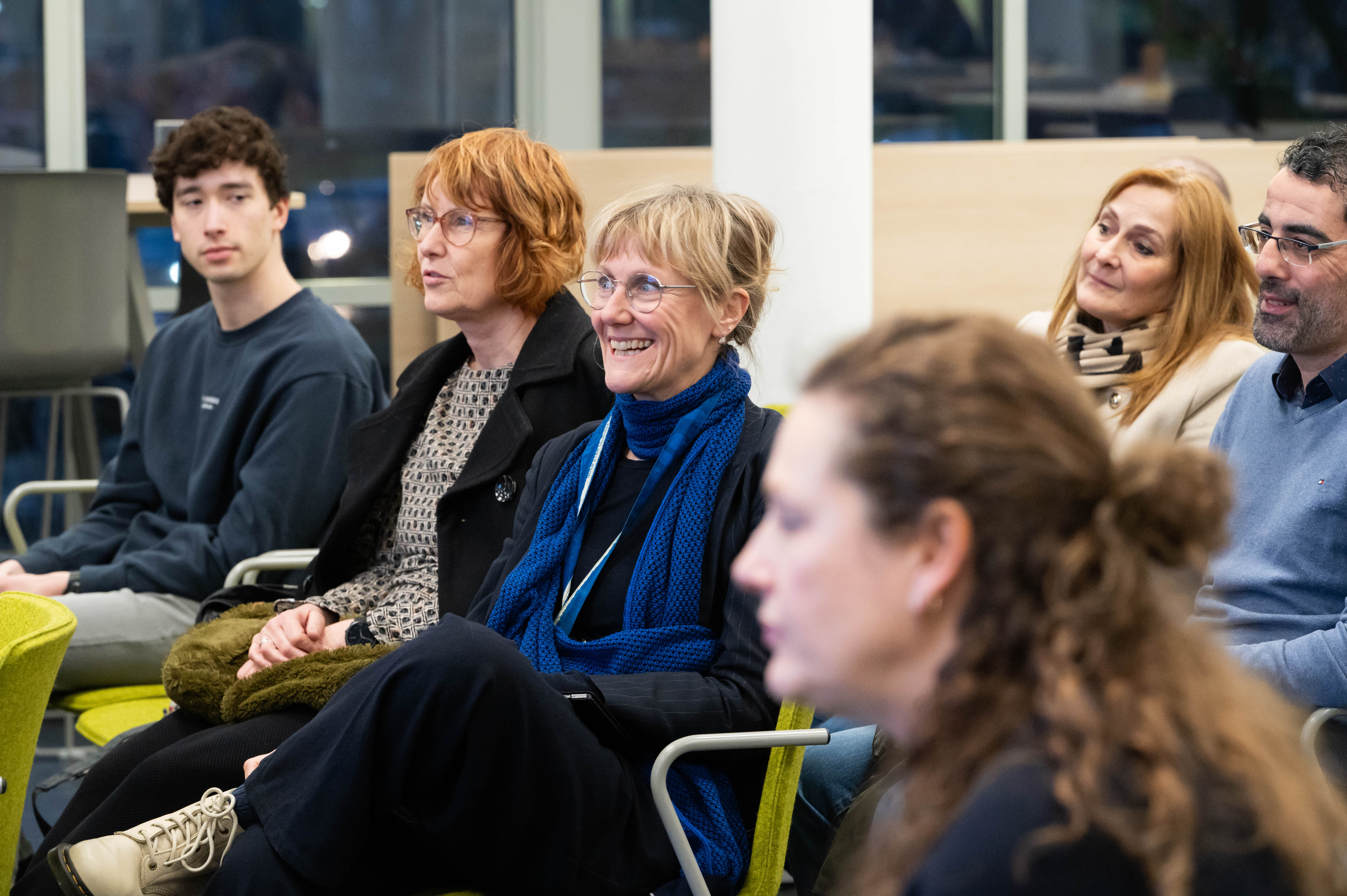
Mission: Transition is a meeting place for students, lecturers, researchers, policy makers and other interested parties, with room for networking and collaboration. The Studium Generale consists of a series of masterclasses and lectures, and offers the opportunity to share knowledge and initiate a broader dialogue on the critical issues shaping our future.. Are you curious about next editions? Mission: Transition – Rotterdam University of Applied Sciences
